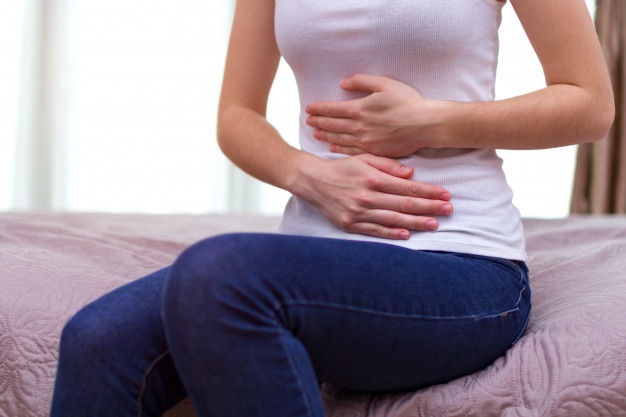An unpleasant sensation of cramps always bothers us, which you already know comes with the menstrual cycle, but what about abdominal pain between your periods or in the middle of the cycle, this indicates you are experiencing ovulating pain though unpleasant is completely a normal phenomenon which occurs when your ovary releases its monthly egg.
It’s not common for everybody to experience ovulating pain, but if you do, it can be a good marker, especially if you are trying to get pregnant.
What does ovulation pain feel like?
Generally, just before two weeks to your period, ovulation may cause a dull and crampy achiness or sharp and sudden pain on either side of your lower abdomen.
You can feel pain on the same side for several months in a row or different sides each month, depending on which ovary releases an egg. But if severe, check in with your gynecologist.
Causes of ovulation pain and cramps
Experts have their opinion on some prime suspects which can cause ovulation pain; these are:
- Normal follicle growth before ovulation stretches the outside of the ovary, causing discomfort.
- When a follicle naturally ruptures and releases an egg duration ovulation, it releases blood and fluid that may irritate surrounding abdominal tissues.
Can it be a marker for ovulating?
Whether you are trying to conceive or merely want to know your body’s temperature, signs of ovulating is significantly quite important. Among many signs, ovulation pain is one of them.
Mild pain or ache in the lower abdomen, usually on one side, not on the same side every time, the ovulation pain called Mittelschmerz, can last anywhere between a few minutes and a few hours. You might also experience vaginal bleeding, discharge, or nausea along with the ache or pain, but it’s usually mild and short-lived.
There is no need to worry about ovulation pain that goes away with a simple anti-inflammatory medication (Motrin). If you are experiencing it severely or persistently, see a doctor to rule out conditions like ovarian cyst or endometriosis. It’s better to monitor and record your ovulation symptoms every month to get a sense of what is normal for your body.
Apart from ovulating pain, some other symptoms can be a marker for ovulation; they are as follows:
- Cervical Mucus Changes
- A heightened sense of smell
- Breast soreness or Tenderness
- Light Spotting or Discharge
- Changes in the Cervix
Summing up
Ovulation pain is usually not much to worry about, especially if you are trying to conceive it; ovulation pain can be a significant marker that can help you get pregnant faster. But if you are concerned about severe pain or symptoms, it is better to check in with your health care practitioner.
You may like:
Ovulation- how long does it last?
I can assume two reasons why one might be interested in reading about ovulation in specific. Either they are family planning, or they want to avoid pregnancy. Whatever the reason is, it is always a great thing to acquire knowledge that enables you to take things under your control. Ladies, it’s time you take maximum advantage of the technology at hand to educate yourself and your daughters. Read More


